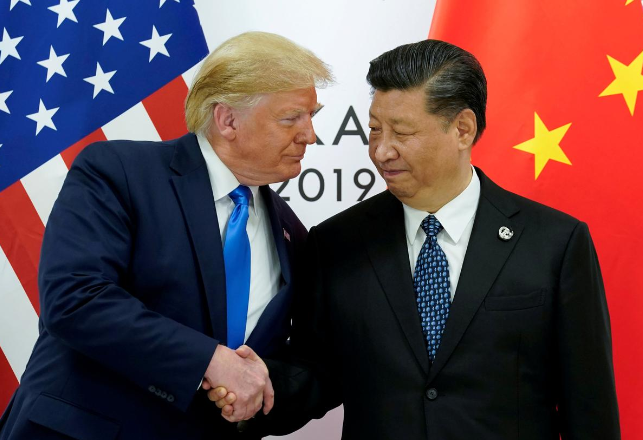Clash of the Aftermaths: Which World Order Will Prevail Post-Pandemic?
Donald Trump has called himself a wartime president. The question is: whose side is he on?
Lisa Van Dusen/For The Hill Times
March 25, 2020
“In this time of crisis, we face two particularly important choices. The first is between totalitarian surveillance and citizen empowerment. The second is between nationalist isolation and global solidarity.” — Israeli historian Yuval Noah Harari, Financial Times Weekend, March 21.
While Donald Trump’s labelling of the COVID-19 coronavirus last week as the “Chinese virus” was as diversionary as it was racist, it was also terribly ironic. By the time the epidemiological and geopolitical dust settles on this pandemic, Trump—if he continues on his current trajectory—will have proven to be the greatest public asset to authoritarian China’s global ascendancy since, well, ever.
For two decades, the standards and norms of non-democracies have crept, with the help of new technology, into democracies; first covertly in the intelligence realm with massively funded, unfettered surveillance and hacking, then overtly in the political realm with the weaponization of lying as a form of psychological warfare and propaganda.
Those trends had brought free societies closer to the new model of totalitarian surveillance before the coronavirus first surfaced in Wuhan, China, on New Year’s Eve. The fact that citizens can’t be empowered if they’re functioning in a daily vortex of state-sponsored lies within an invisible web of monitoring, hacking, and tracking is at the core of Harari’s choice. As Beijing knows from experience, human beings generally don’t consent to their own disempowerment or enslavement, cyber or analog. That consent suddenly becomes more obtainable when the calculation is not “This could destroy your life” but “This could save your life.”
The choice between nationalist isolation and global solidarity was skewed when Donald Trump oddly repurposed nationalism as a form of systematic diminishment rather than loony aggrandizement, an operational twist telegraphed with the classic misdirection of “Make America Great Again,” the first and biggest of the 20,000 lies he’s told. Global solidarity of the kind America led at the post-crash, April 2009 London G20 has been replaced by a vacuum assiduously created by Trump and energetically filled by China. As has been widely reported in the past week, China is winning the battle of the coronavirus narratives because America is forfeiting. In the borderless battlefield of totalitarian surveillance versus citizen empowerment, that means totalitarian surveillance is winning because America is forfeiting. Somewhere, Ronald Reagan is incandescent.
So, as we all do our utmost to prevent the virus from spreading, it’s worth noting that there’s nothing more susceptible to transformation, or more corruptible, than a tabula rasa—a life destroyed, a company on the ropes, a country degraded beyond recognition. And any society where normal rituals, institutions, expectations, routines, and rights have been suspended for a significant length of time is a target for existential disruption above and beyond a pandemic, especially when its people have been pre-conditioned to expect the previously unthinkable. After years of American democracy being degraded from within—its institutions, its media, its processes, its credibility, its appeal—most recently and flamboyantly from the White House, that vulnerability is now looking less like an unintended consequence than an endgame.
It seems obvious to say that decisions made now, in this crisis, will determine the aftermath. But many of those decisions are being made by leaders—Trump, England’s Boris Johnson, Brazil’s Jair Bolsonaro, the Philippines’ Rodrigo Duterte, Israel’s Benjamin Netanyahu, and Hungary’s Viktor Orbán—who’d already been taking sides in the global battle between democracy and authoritarianism as heads of government claiming to be defending democracy while doing everything in their power to undermine it.
Which only makes Trump’s ineptitude in the face of this pandemic as performative as the rest of his presidency.
Lisa Van Dusen is associate editor of Policy Magazine and a columnist for The Hill Times. She was Washington bureau chief for Sun Media, international writer for Peter Jennings at ABC News, and an editor at AP in New York and UPI in Washington.

